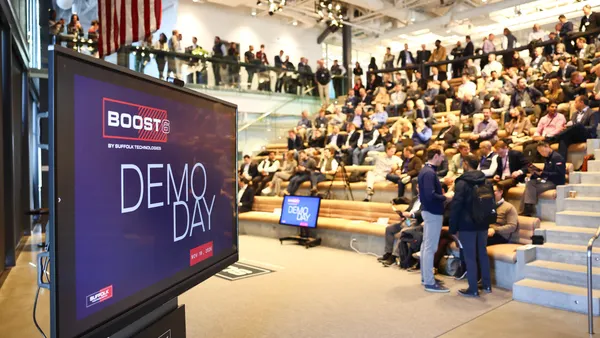Dive Brief:
- Construction equipment behemoth Caterpillar announced Tuesday that it would move its global headquarters from Peoria, IL, to the Chicago area, with plans to staff its new offices with at least 300 employees, according to the Chicago Tribune.
- In a statement, newly installed CEO Jim Umpleby said the move was necessary so that the company would be able to take advantage of the Chicago talent pool and have easy access to the international transportation options necessary to conduct its global business.
- Caterpillar has not yet announced whether it will move its headquarters to the city of Chicago or its suburbs, likely igniting a competition between the two areas in an effort to attract the company.
Dive Insight:
Although the company said it would keep the vast majority of its 12,000 positions in Peoria, Caterpillar no doubt dealt a blow to its residents, as the company has been headquartered in Peoria since the early 1900s. Caterpillar was planning to build a new headquarters there but announced in late 2015 that construction would be delayed as it began execution of a restructuring plan necessitated by a persistent slump in revenue.
The announcement comes on the heels of Caterpillar's fourth-quarter and year-end 2016 earnings release that revealed a $1.5 billion decline in annual revenue. The company beat quarterly earnings expectations by 17 cents a share but lowered its 2017 revenue estimates, citing a soft global sales market.
Since the announcement of its cost-cutting initiative, which includes laying off up to 10,000 workers and closing or consolidating a number of plants, Caterpillar announced that it would also lay off thousands of overseas workers and close another 300-employee Illinois plant. The number of workers it has laid off, according to Reuters, has reached 16,000. In addition, former CEO and Chairman Doug Oberhelman resigned after 40 years with the company as of the end of 2016.
Caterpillar joins other companies relocating to large metro areas like Chicago in order to remain competitive in employee retention and recruitment and to adjust to the new demands of modern work spaces. The up and coming millennial workforce has even begun to influence the design of office space into one that is more attune to collaboration and sharing of ideas, a culture that more companies are attempting to adopt. Walkable, neighborhood-oriented cities like Chicago are the ones most likely to appeal to a modern workforce.
McDonald's announced its headquarters relocation to Chicago last year as well and began construction on a Gensler-designed, $250 million office late last year on the former site of Oprah Winfrey's Harpo Studios. Developer Sterling Bay was able to secure a $209 million loan for the project, largely based on McDonald's long-term lease for the majority of space in the building.













